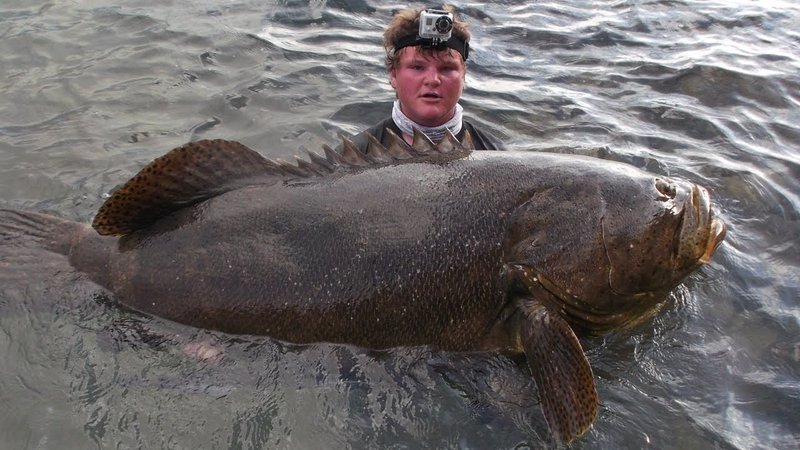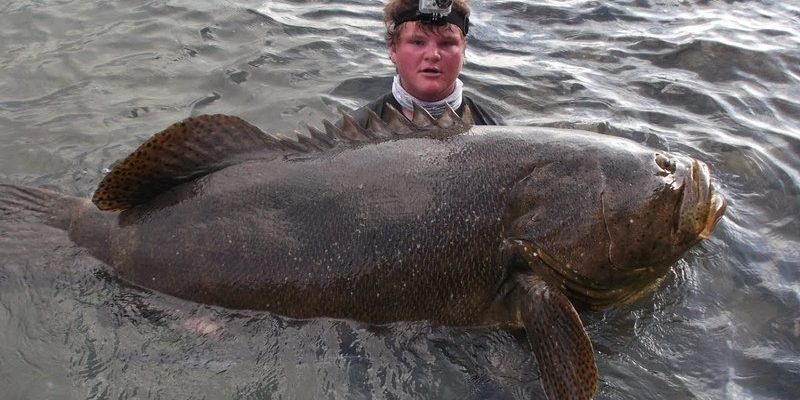
Now, if you’ve ever seen a grouper, you’ll know they have a unique look that sets them apart—big mouths and robust bodies make them quite the sight in both the wild and on dinner tables. Whether you’re learning about them for culinary reasons or simply out of curiosity, there’s a whole world of lore surrounding these fascinating creatures. Let’s break down some of the most intriguing myths and cultural beliefs about the grouper.
The Grouper in Folklore and Myths
When it comes to myths surrounding the grouper, they vary dramatically from culture to culture. In some Caribbean islands, groupers are considered to be *protectors of the ocean*. Local tales often depict these fish as guardians that ensure safe passage for fishermen and travelers at sea. This belief runs deep; it serves as a reminder to respect the ocean and its inhabitants. Just picture fishermen telling tales of the grouper swimming alongside their boats, leading them to safe harbors as a way of bridling the powerful forces of nature.
On the other coast, in parts of the Mediterranean, groupers are often associated with good luck. The belief is that catching a grouper during your first fishing trip will bring abundance and prosperity. This cultural belief emphasizes the grouper’s significance—not just as a meal, but as a symbol of bountiful returns. If you’re planning your first fishing venture, imagine the thrill of reeling in a grouper and knowing you’re set for a successful season ahead!
Cultural Significance in Cuisine
Groupers are not only culturally significant due to their mythologies; they hold an important place in various cuisines worldwide. In many coastal communities, they’re a staple dish. Take, for instance, the classic Italian dish—*Branzino alla Griglia*. While branzino refers to a different kind of fish, grilled grouper can serve as an equally delicious alternative. It’s often seasoned with herbs and olive oil, showcasing what makes the Mediterranean diet so renowned.
In the Caribbean, *grouper with mango salsa* is a popular dish that reflects the color and vibrancy of the islands. The sweet and spicy flavors complement the fish’s mild taste, cementing the grouper’s role in celebrating local ingredients. It’s amazing how food ties into cultural stories and beliefs. A lovely grouper meal can invoke memories, family gatherings, and traditions passed down through generations.
Grouper Superstitions
You might be surprised to learn that there are various superstitions related to grouper fishing. One widespread belief among fishermen is that it’s bad luck to clean or prepare a grouper on a Tuesday. Some feel that this unreasoning caution is tied back to the idea that groupers, being such respected creatures, should not be disrespected in this way.
Interestingly, many fishermen also caution against fishing for groupers during certain moon phases. The belief is that they feed more aggressively during some phases, leading to a more successful catch—while others might lead to little more than empty nets. These superstitions highlight a deep respect for nature and its rhythms. After all, who can blame the fisherman who wants to bring home a trophy fish?
Environmental Respect and Conservation
As we delve deeper into the beliefs surrounding groupers, we can’t overlook the cultural connection to environmental conservation. In many places, local communities recognize that overfishing can threaten grouper populations. This realization has sparked movements to protect these fish.
For instance, in parts of Florida, special grouper seasons limit fishing to allow the populations to recover. This is critical because the grouper plays an essential role in maintaining the health of coral reefs. Communities that once revered the grouper as a good luck charm are now advocates for sustainable practices, ensuring that future generations will enjoy the same benefits and beauty of these fish. It’s a powerful shift—one that embodies changing beliefs that prioritize the ecosystem’s health.
The Grouper and Spiritual Connections
In some cultures, the grouper transcends mere food and becomes a spiritual symbol. For example, in Southeast Asian beliefs, some view the grouper as a spirit guide, thought to impart wisdom or guidance. This connection might lead anglers to treat the catch with reverence, acknowledging a deeper relationship with the natural world.
These beliefs often manifest in rituals around fishing or preparing the catch. Anglers may offer thanks to the grouper before a fishing trip, asking for blessings of safe travels and plentiful catches. This spiritual aspect fosters a sense of unity between humans and nature, portraying the grouper not just as a resource, but as an integral part of life itself.
Groupers in Art and Literature
It’s fascinating to see how groupers have found their way into various forms of art and literature. Many coastal artists have captured the beauty of the grouper in their paintings, showcasing their vibrant colors and unique features. The dynamic presence of the grouper in artwork often tells stories of the sea, nostalgia, and community life.
Besides visual art, you might spot groupers mentioned in folklore stories or songs. They often symbolize abundance, resilience, or the challenges faced by fishermen. Whether in a local poem or a contemporary song, the grouper continues to resonate deeply with communities, echoing the tales passed down through generations. This artistic inspiration elevates the grouper from just a fish to a cultural icon, entwined in the fabric of coastal life.
So, what’s the bottom line about the grouper? They’re more than just a popular catch—they’re woven into the very fabric of cultural identities around the world. From myths and culinary traditions to superstitions and spiritual beliefs, groupers hold a unique place that goes beyond the plate. They remind us to respect the ocean, celebrate our cultural stories, and think about sustainability.
Whether you’re an angler, a foodie, or just someone intrigued by the stories fish tell, understanding the cultural beliefs surrounding the grouper opens up a whole new world. Next time you see a grouper on the menu or catch a glimpse of one swimming, take a moment to appreciate the rich history and lore that accompanies this remarkable fish.

